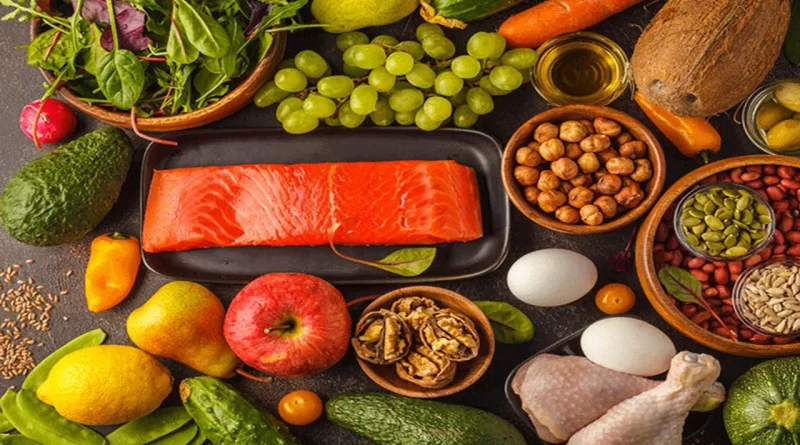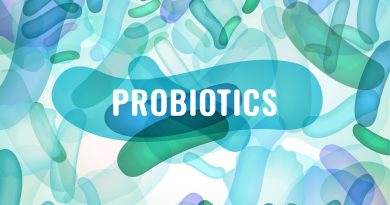Why science says you should never give up fruit on a low-carb diet
One of my patients, who had been having trouble with being overweight, not being able to control her diabetes, and the cost of her medications, agreed in June 2019 to eat more whole foods from plants.
She did a great job because she was excited about the challenge. She ate more fresh fruits and vegetables and less candy, cookies, and cakes. She also ate less food that came from animals. In six months, she lost 19 pounds and her HbA1c, which is a measure of her average blood sugar, went from 11.5 to 7.6 percent.
She was doing so well that I thought her HbA1c would continue to go down and that she would be one of our plant-based success stories whose diabetes went away.
Because of COVID-19 lockdowns, her three-month follow-up visit in March 2020 could not happen. When I finally saw her again in May 2021, she had put on some weight, and her HbA1c had gone up to 10.4%.
She said that both her diabetes doctor and a diabetes nurse educator had told her that on the plant-based diet, she was eating too much “sugar.”
She was told to cut down on carbs by eating less fruit and vegetables with a lot of starch and more fish and chicken. People were told to eat sugar-free candy, cakes, cookies, and artificial sweeteners. Even though different doctors told her different things, she went with the common belief that “sugar” is bad and should be avoided whenever possible, especially if you have diabetes.
I’m a doctor who is board-certified in preventive medicine and works at Morehouse Healthcare in Atlanta, where I run a clinic for lifestyle medicine. This new area of medicine focuses on helping people change their habits to live healthier lives.
When people switch to whole-food, plant-based diets, their carbohydrate intake goes up, and many chronic diseases, like diabetes and high blood pressure, go away. From what I’ve seen in the medical field, both patients and health professionals often believe false things about “sugar” and carbohydrates.
Fruit vs. sugar
Your body needs glucose to work. Cells get their energy from simple sugar.
Glucose is a molecule that makes up carbohydrates, which are one of the three macronutrients that your body needs. Fat and protein are the other two. Starches are long chains of glucose that branch out.

Carbohydrates found in foods like fruits, vegetables, whole grains, nuts, and seeds are packed with nutrients.

People have developed a sweet tooth so they can get the nutrients they need to live. We need vitamins, minerals, and fiber every day because our bodies can’t make them on their own. Our ancient ancestors got most of these things from sweet, ripe, and tasty fruit.
Also, fruits have chemicals called phytonutrients and antioxidants that can only be made by plants. Strawberry phytonutrients like ellagic acid can help prevent cancer and keep your heart healthy.
On the other hand, refined sugars go through a lot of processing and are stripped of everything but calories. They have a lot of carbohydrates in them. In many ways, refined sugars are made by the food industry. The most common are sucrose crystals, which you know as table sugar, and high-fructose corn syrup, which is found in many processed foods and sweetened drinks.
If you always satisfy your sweet tooth with refined sugar instead of the nutrient-dense fruits that are at the root of this evolutionary craving, you may not get all the nutrients you need.
Over time, this deficit may cause people to eat too much, which can lead to obesity and health problems caused by obesity. Women who eat a lot of fruit are less likely to be overweight.
Sugar is poisonous
Refined sugars don’t kill cells directly, but they can combine with proteins and fats in food and in the bloodstream to make advanced glycation end products, which are toxic (AGEs). Glycated low-density lipoproteins can be made when there is a lot of glucose in the blood. High levels of these and other toxic substances related to glucose are linked to a higher risk of a wide range of long-term health problems, such as diabetes and heart disease.
Type 2 diabetes is the disease most often linked to sugar. Surprisingly many people, even health professionals, think that eating sugar causes Type 2 diabetes when it doesn’t. This myth makes people focus on lowering blood sugar and “counting carbs” instead of the real cause, which is the gradual loss of function of pancreatic beta cells. At the time of diagnosis, a person with diabetes may have lost between 40 and 60% of their beta cells, which make insulin.
Insulin is a hormone that controls the amount of glucose in the blood. It does this by stopping the liver from making glucose and sending it into fat and muscle cells. When beta cells stop working, not enough insulin is made, which causes the high blood sugar levels that are a sign of Type 2 diabetes.
Beta cells don’t have many antioxidants, so they can be hurt by oxidized free radicals and AGEs that come from metabolism and food. Antioxidants in fruit can protect beta cells. Researchers have found that eating whole fruit lowers the risk of Type 2 diabetes, with the lowest risk being in people who eat the most fruit.
Detoxing from sugar
People who want to get healthier and lose weight often wonder if they should do a “sugar detox.” I don’t think this is worth your time because you can’t get rid of sugar from your body. For example, if you only ate baked chicken breasts, your liver would use a process called gluconeogenesis to turn the protein you ate into glucose.
Low-carb diets may help you lose weight, but they are bad for your health. Diets that cut carbs by a lot are linked to not getting enough nutrients and a higher risk of dying from any cause. On ketogenic diets with few carbs, the body breaks down muscles and turns their protein into glucose. Constipation is caused by not getting enough fiber.
A good goal is to stop eating foods that are sweetened with refined sugar. But don’t think of it as a “detox.” Instead, it should be a permanent change in how you live. The safest way to “detox” from refined sugar is to eat more fruits and vegetables that are high in nutrients. Once you stop eating refined sugar, your taste buds will probably become more sensitive to the natural sweetness of fruits and appreciate it more.



